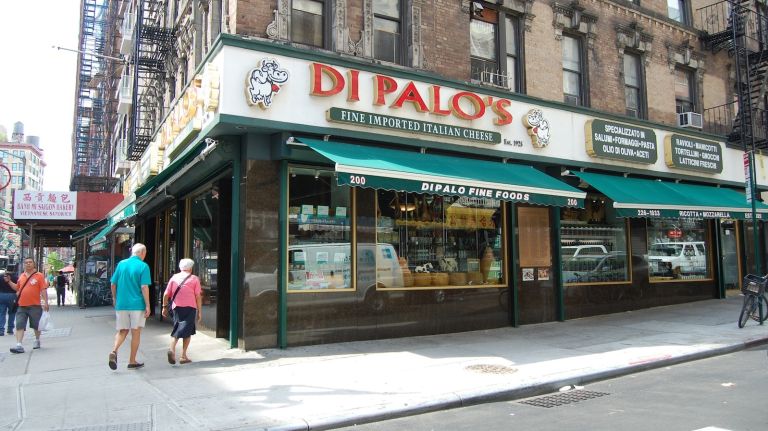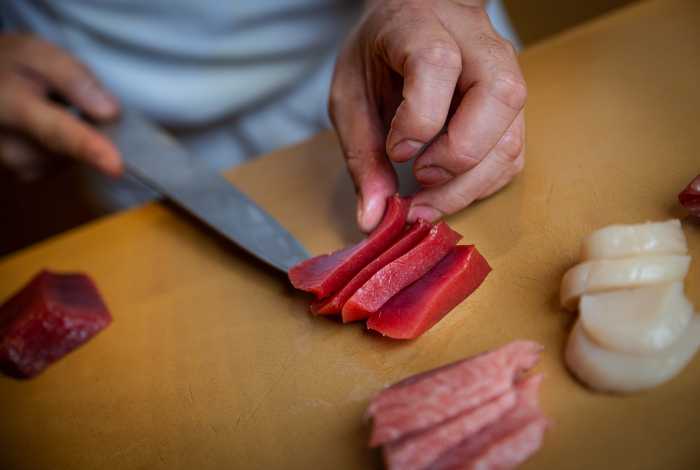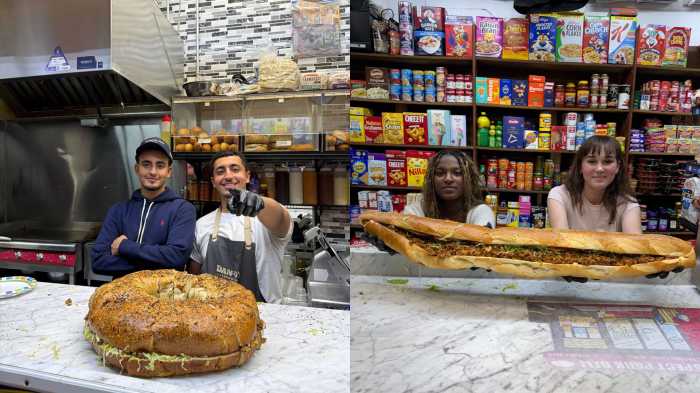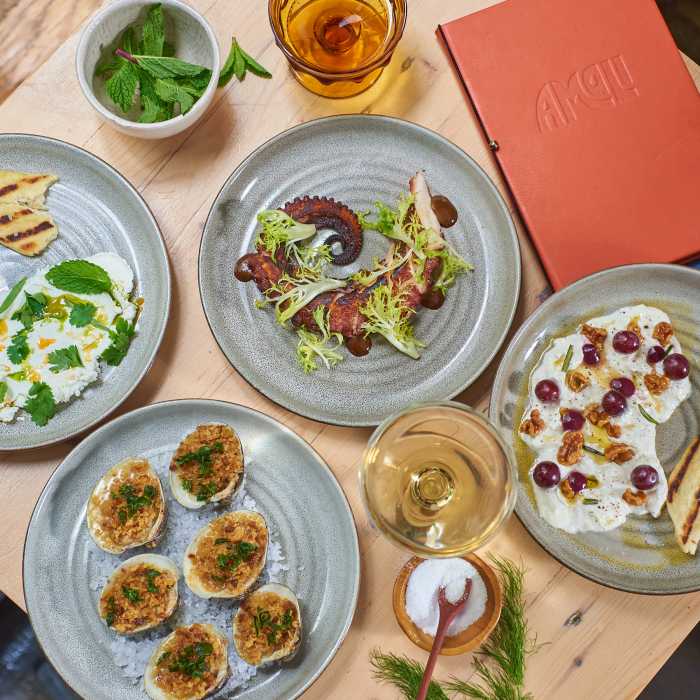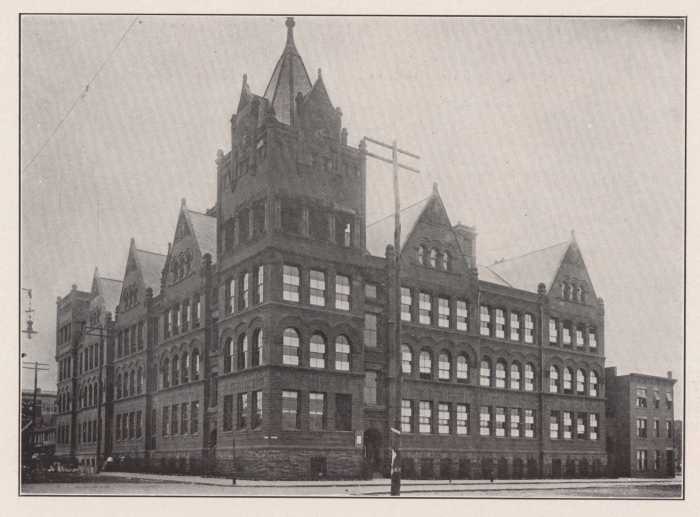
Di Palo’s Fine Foods has been selling Italian cheeses and other products on the corner of Grand and Mott streets in Little Italy since 1925. How has the family done it? According to Lou Di Palo, it’s because of the emphasis on the customer.
Di Palo explains this philosophy in his book “Di Palo’s Guide to the Essential Foods of Italy,” which is out on Sept. 9.
“When your turn comes, you are the only customer in the world. You can ask as many questions as you want, sample as many things as you like. We take our time, we talk to you, we try to explain what it is you are seeing and tasting…We want you to go home with a little bit of what Italy is all about, what doing business in this store a hundred years ago was like.”
This reporter saw that kind of deliberate, personal service first hand. An interview with Di Palo was delayed by 15 minutes because of the high level of attention that was paid to customers in the store.
Di Palo didn’t apologize, and that was fine. The store was so homey, so comfortable (there were even a few chairs), and the air so fragrant, there was little opportunity for displeasure.
Lou Di Palo runs the Italian grocery store with his brother Sal and his sister Marie, but in his book he says the owners of the store are his grandmother, grandfather and father.
“We’re just caretakers.”
Indeed, on the wall above one of the freezers, filled with ravioli and other pastas, is a black and white photo of the three proprieters, blown up to a large size so everyone can see.
Family is first in Italian culture, and at Di Palo’s, everyone is family.
I asked why so many people love Italian food and culture.
“When you go to Italy, you feel like you belong there,” Di Palo said in an interview at Di Palo Enoteca, the wine shop next door to Di Palo’s that’s run by his son Sam. “The lifestyle, and what’s important, is family and food.”
Family and food: certainly two things that go together and make people happy. Di Palo says that’s why the store has not only survived, but thrived, after all these years. Even as Little Italy shrinks and New York City changes, Di Palo’s offers something that can’t be found at just any grocer.
“Di Palo’s Guide to the Essential Foods of Italy” is not encyclopedic, it’s a book of stories about food.
“It’s about our life’s work, [but also] how we went to Italy to reestablish our connections with the food,” Di Palo said.
Each chapter is about a different Italian food item, from mozzarella to prosciutto to pasta to olive oil. But what makes each chapter interesting are the people that come to life in the descriptions and the rich histories that unfold. Like Di Palo’s recalling of the first time he had prosciutto: he was in Calabria with his wife, and saw a waiter pushing a cart with a “whole leg of beautiful cured ham, the fat as pink as the meat.”
He had to try it and after the waiter carved the thin slices for him, he reached for his fork.
“He wagged his finger at me,” Di Palo wrote. “He took a slice, and he held it across his face, breathing in deeply to take in its aroma, and then he ate it, right from his fingertips. And so I took his advice — the aroma was unbelievable … To this day whenever I eat a slice of really good prosciutto, I think of that moment.”
Memorable and emotional stories like this fill the pages, as does the history of Di Palo’s: how Lou’s grandfather Savino first opened the latteria (a dairy), how his parents met and joined the business and how he came to work there too, after making good money in real estate.
Di Palo, who lives in Bay Ridge with his family, says he wants readers to read the stories and understand the importance of knowing the producers of the food you eat.
“When you eat food that’s made with a lot of passion and tradition behind it, it’s always better,” he said. “I wanted to show the people that produce the products.”
Martin Scorsese wrote the foreword to the book, and clearly he feels similarly to Di Palo. Tradition, family, food – that’s what’s important. He explained a visit he made to Di Palo’s after many years:
“My life had changed in many ways too since I’d left, but when I walked into the store and saw Lou behind the counter, I was home.”



